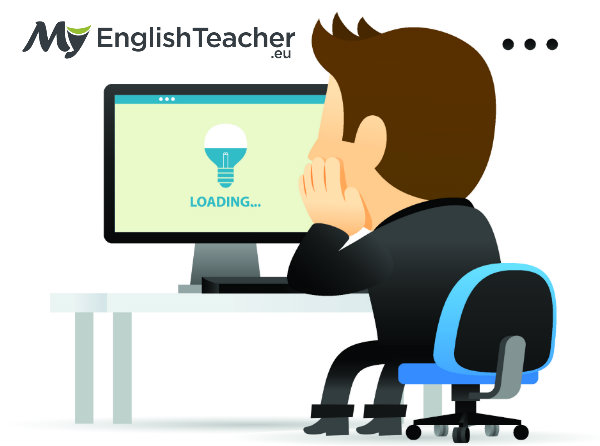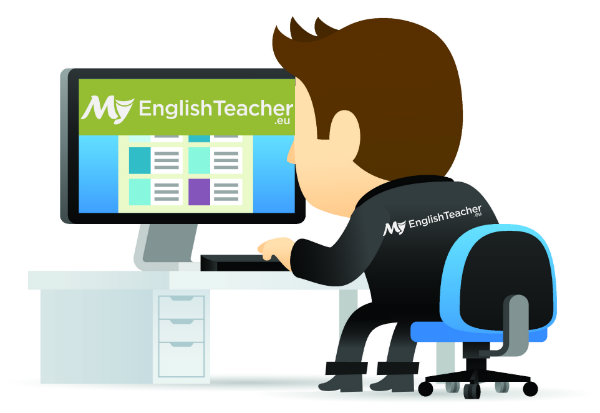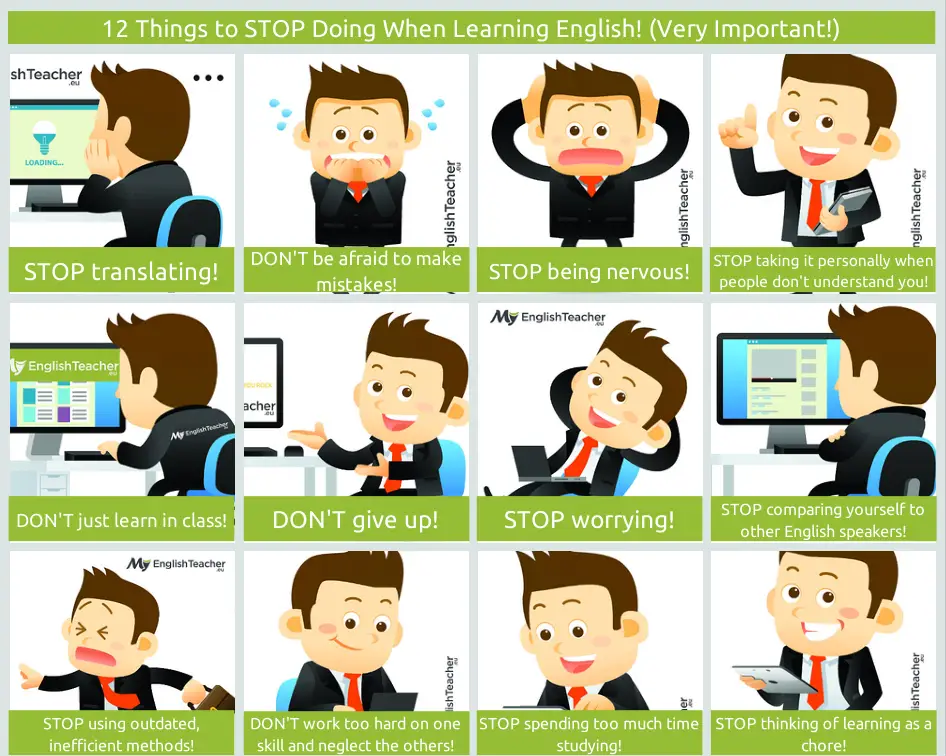Home
ให้ของขวัญแก่ตัวเองในปีใหม่ 2561

สวัสดีปีใหม่ 2561 ครับ
ปี 2560 ที่ผ่านมา เว็บ e4thai.com ได้หาสื่อการเรียนการสอนภาษาอังกฤษมาฝากท่านผู้อ่านมากพอสมควร พอขึ้นปีใหม่นี้ ผมมาประเมินตัวเองว่าได้ทำหน้าที่ดีมากน้อยเพียงใดในฐานะ Webmaster ก็ได้คำตอบว่า ถ้าเป็นครูผมก็คงเป็นครูที่สอนแย่มาก หรือแทบไม่ได้สอนอะไรเลย เพราะผมได้แต่ไปหา eBook, บทความ หรือคำอธิบาย-คำแปลที่เป็นภาษาไทยจากเว็บอื่นที่ผมเห็นว่าเข้าท่า มาฝากท่านผู้อ่าน ส่วนตัวผมเองแทบไม่เคยอธิบายอะไรเป็นภาษาไทยเลย ผมจึงขอถือโอกาสนี้ขอบคุณท่านผู้เขียนบทความหรือให้คำอธิบายเป็นภาษาไทย ที่ผมดึงมาแปะไว้ที่เว็บนี้
สิ่งที่ผมนำมาฝากส่วนใหญ่จะเป็นเว็บ, ลิงก์, eBook, โปรแกรม, ไฟล์เสียง, คลิป, audiobook ที่เป็นภาษาอังกฤษ ผมถามตัวเองว่า สื่อการเรียนที่เป็นภาษาอังกฤษพวกนี้ ถ้าไม่แปลหรืออธิบายเป็นภาษาไทย คนที่พื้นภาษาอังกฤษอ่อน จะอ่านรู้เรื่องหรือฟังรู้เรื่องรึ? ถ้าไม่รู้เรื่อง ของที่ฝากไว้ในเว็บนี้ก็เป็นประโยชน์เฉพาะต่อคนที่พื้นดี อ่านรู้เรื่อง-ฟังรู้เรื่อง ส่วนคนที่อ่านไม่รู้เรื่องผมไม่สนใจเลยรึ? หรือเว็บ e4thai ดูแลเฉพาะคนเก่ง ส่วนคนไม่เก่งก็หาทางทำความเข้าใจกันเอาเอง อย่างนั้นรึ?
คำตอบของผมก็คือ ไม่ใช่ครับ ผมทำเว็บ e4thai เพื่อให้คนไทยทุกคนเข้ามาฝึกภาษาอังกฤษ ไม่ว่าจะเป็นคนเก่งหรือไม่เก่ง อ่าน-ฟังภาษาอังกฤษ ได้ดี-ได้ปานกลาง-ไม่ได้เลย เว็บ e4thai มีไว้เพื่อให้ทุกคนครับ
อ้าว! ถ้าอย่างนั้นทำไมผมแทบไม่เคยอธิบายเป็นภาษาไทยไว้ในเว็บนี้เลย ได้แต่ไปหาคำอธิบายหรือคำแปลจากที่อื่นมาแปะไว้ที่นี่?
ผมทำอย่างนี้ก็เพราะผมมีความเชื่อว่า การเข้าใจผ่านภาษาแม่ของตัวเอง(คือภาษาไทย)แม้ช่วยให้คนเรียนเข้าใจ แต่ก็ไม่ช่วยให้คนเก่ง คนที่จะเรียนภาษาอื่น(ภาษาอังกฤษ)ได้เก่ง จะต้องไม่พึ่งการแปล จะต้องฝึกอ่านและฟังเป็นภาษาอังกฤษ, เข้าใจเป็นภาษาอังกฤษ, งงเป็นภาษาอังกฤษ, รู้เรื่องเป็นภาษาอังกฤษ โดยไม่ต้องมีคำแปลไทยเข้ามาเกี่ยวข้อง
และวันนี้ผมขอพูดเกี่ยวกับการฝึกอ่านภาษาอังกฤษ หรือ Reading
ผมเดาว่า แทบทุกท่านคงเคยได้ยินคุณครูหรือผู้รู้แนะว่า เมื่อจะพูดภาษาอังกฤษ อย่าคิดเป็นภาษาไทย ให้คิดเป็นภาษาอังกฤษไปเลย เพราะถ้ายังคิดเป็นภาษาไทยและแปลกลับไปกลับมาระหว่างไทยกับอังกฤษ มันจะช้า, ไม่ทันกิน, และจะพูดอังกฤษอย่างไม่เป็นธรรมชาติ หรือถ้าต้องแปลเป็นภาษาไทยก็แปลให้น้อยที่สุด เท่าที่จำเป็น
คำแนะนำอย่างนี้ผู้เรียนจะทำได้ก็ต่อเมื่อได้ฝึกให้ตัวเองถูกย้อมด้วยภาษาอังกฤษเยอะ ๆ คือ ฟังภาษาอังกฤษเยอะ ๆ, อ่านภาษาอังกฤษเยอะ ๆ, ฝึกอ่านออกเสียงเป็นภาษาอังกฤษ, ฝึกพูดภาษาอังกฤษกับคนอื่น, แต่ถ้าไม่มีคนอื่นให้ฝึกพูดด้วยหรือมีน้อยมาก ก็ต้องฝึกพูดกับตัวเองหรือพูดคนเดียว ถ้าฝึกอย่างนี้เยอะ ๆ บ่อย ๆ ภาษาอังกฤษก็จะเข้าไส้ ไหลซึมเข้าสมอง และเมื่อจะพูดภาษาอังกฤษ ก็จะง่ายที่จะไม่ต้องคิดเป็นภาษาไทยขณะที่พูดภาษาอังกฤษ
นั่นคือเรื่องของการฝึกพูดภาษาอังกฤษ ส่วนการฝึกอ่านภาษาอังกฤษ ก็ทำนองเดียวกัน คือตอนที่เราอ่านภาษาอังกฤษ ถ้าจะให้อ่านได้ดี อ่านได้เร็ว อ่านได้รู้เรื่องเป็นธรรมชาติ เราควรจะรู้เรื่องเป็นภาษาอังกฤษไปเลย โดยไม่ต้องมีคำแปลไทยแทรกอยู่ในสมองขณะที่เข้าใจเนื้อหา หรือถ้ามีก็เฉพาะบางคำที่จำเป็นต้องแปล แต่ส่วนใหญ่ให้ความเข้าใจไหลเป็นภาษาอังกฤษไปเลย หลังจากนี้เมื่อจะนำเนื้อหามาพูดต่อเป็นภาษาไทย มันก็จะทำได้เอง
แล้วจะฝึกยังไงให้สามารถทำอย่างนี้ได้ โดยเฉพาะอย่างยิ่งถ้าภาษาอังกฤษอ่อนแอมาเนิ่นนานแล้ว จะฝึกอ่านโดยไม่พึ่งคำแปลไทย มันจะเป็นไปได้ยังไง?
ท่านผู้อ่านครับ เมื่ออ่านมาถึงบรรทัดนี้ ไม่ว่า reading skill ของท่าน ณ นาทีนี้จะสูงต่ำปานใด ถ้าท่านมีเป้าหมายของชีวิตว่า ต้องสามารถอ่านภาษาอังกฤษได้รู้เรื่องเหมือนอ่านภาษาไทย มันจะถึงเป้าหมาย 100 % ในอีกกี่เดือน กี่ปีข้างหน้าก็ช่างเถอะ แต่ถ้านี่คือเป้าหมายของท่าน ท่านก็ต้องฝึกไม่หยุด เพราะว่าในที่สุด Practice จะ makes perfect. และขณะที่ยังไม่ถึงที่สุด ถ้ายังไม่หยุดฝึก Practice ก็จะ makes progress.

ผมดูแล้ว คำแนะนำในการฝึก reading นี่มันง่ายมาก ไม่ได้ซับซ้อนอะไรเลย คือฝึกอ่านทุกวัน ไม่เว้น ไม่ว่าจะมีเวลาหรือไม่มีเวลา, มีอารมณ์จะอ่านหรือไม่มีอารมณ์, จะอ่านรู้เรื่องมาก-รู้เรื่องน้อย-หรือไม่รู้เรื่องเลย, มีเรื่องดี ๆ ให้อ่านหรือถ้าไม่มีก็ต้องหาอะไรสักอย่างมาฝึกอ่านผ่านตาให้ได้ คำแนะนำมีง่าย ๆ สั้น ๆ แค่นี้แหละครับ และฝึกอ่านเรื่อยไปไม่หยุดด้วยความอึด reading skill ของเราก็จะ progress ทุกวัน จนในที่สุดก็จะ perfect ใช้งานได้เหมาะมือเหมาะใจ
แต่ถ้าท่านต้องการคำแนะนำเป็นข้อ ๆ ให้ดูเป็นวิชาการหน่อย ผมก็ขอเสนอข้างล่างนี้ครับ
[1] เลือกเรื่องที่จะฝึกอ่านที่ท่านชอบใจ พอใจ ยาก-ง่ายพอฟัดพอเหวี่ยงกับท่าน แต่อันนี้ท่านต้องลงทุนหาเองครับ
→ คลิกดูที่นี่
[2] ถ้าอ่านผ่านคอมฯ ผมขอเสนอตัวช่วย คือ
→ add-on "English dictionary translate pronunciation"
ซึ่งเป็นดิกอังกฤษ-อังกฤษ Longman ควบคู่กับดิกอังกฤษ-ไทย Google เรื่องนี้ผมขอชี้แจงว่า ถ้าจะใช้ดิกให้ได้ผล เราจำเป็นต้องพึ่งดิกอังกฤษ-อังกฤษ เพราะว่าดิกอังกฤษ-ไทยต่อให้ดีขนาดไหนประสิทธิภาพมันก็มีจำกัด โดยเฉพาะอย่างยิ่งเรื่องศัพท์: จะมีน้อย, ความหมายใหม่ ๆ ที่เพิ่งเกิด, ความหมายที่เป็น informal, idiom, phrasal verb, slang, technicl term ฯลฯ ความหมายพวกนี้ใช้ดิกอังกฤษ-ไทย ไม่พอหรอกครับ และอีกอย่างหนึ่ง คำแปลภาษาไทยสั้น ๆ ในดิกอังกฤษ-ไทย นั้น บ่อยครั้งที่มันไม่พอ ถ้าจะให้เข้าใจถูกต้องจริง ๆ เราควรอ่าน definition ที่เป็นภาษาอังกฤษ ที่ดิกอังกฤษ-อังกฤษ
และดิก add-on ตัวนี้ยังใช้สะดวกตรงที่ว่า แค่คลิกครั้งเดียว definition + คำแปล ก็จะโผล่ขึ้นมาให้เห็นทันที
[3] ยังมีความยากลำบากอีกอย่างหนึ่งในการอ่านภาษาอังกฤษ คือเรื่องของแกรมมาร์หรือโครงสร้างของประโยค อย่างเช่น เราไปเจอประโยค I love you. เมื่อแปลหรืออ่านให้เข้าใจมันก็ง่าย เพราะมันไหลไปเลยไม่ต้องสลับที่ เป็น: ฉัน → รัก → คุณ แต่ว่าประโยคภาษาอังกฤษมากมายมันซับซ้อนกว่านี้ ทำให้ต้องรู้ไวยากรณ์ของเขาจึงจะอ่านภาษาของเขารู้เรื่อง ผมได้รวบรวมเฉพาะไวยากรณ์ที่ต้องรู้จริง ๆ เพื่อจะได้อ่านภาษาอังกฤษรู้เรื่อง
→ คลิกดู 1
→ คลิกดู 2
การรู้แกรมมาร์โดยอ่านตำรานี้ก็ดีอยู่หรอก แต่ที่ดีกว่านี้ก็คือ การได้อ่านเนื้อหาภาษาอังกฤษโดยตรง โดยเริ่มจากเรื่องง่าย ๆ ที่เราพอเข้าใจได้ และขยับยากขึ้นเรื่อย ๆ เราจะได้เรียนรู้ทั้งคำศัพท์และการนำคำศัพท์หลาย ๆ คำมาผูกเป็นประโยค สิ่งที่เราซึมซับจากการอ่านนี้ก็คือแกรมมาร์ที่เป็นธรรมชาติ ซึ่งจะช่วยให้เรา "แน่น" มากกว่าอ่านทฤษฎีแกรมมาร์จากตำราเสียอีก

บทความในวันนี้ ผมไม่ได้พูดอะไรใหม่เลย ทุกอย่างผมเคยพูดแล้วในหลายบทความซึ่งเขียนไว้แล้วในปีที่แล้วหรือปีก่อน ๆ ท่านผู้อ่านเชื่อผมได้เลยครับว่า ในการฝึก reading skill นี้ คำแนะนำที่คุณครูให้นั้น อย่างมากก็แค่ 1% แต่อีก 99 % เป็นสิ่งที่ทุกคนต้องฝึกเอาเอง และการฝึกนี้หมายถึงการแก้ปัญหาให้ตัวเองด้วย เมื่อเราอ่านภาษาอังกฤษแล้วไม่รู้เรื่อง ไม่เข้าใจ งง ถ้ามีใครมาตอบคำถามหรือแก้ปัญหาให้เราทันที สมองเราจะไม่ได้พัฒนา เปรียบไปแล้วก็เหมือนเด็กที่หัดเดิน ถ้าทุกครั้งที่เด็กล้มและพ่อแม่เข้าไปพยุงหรืออุ้ม เด็กก็คงเดินไม่ได้เพราะไม่เคยเรียนรู้ที่จะเดินไม่ให้ล้ม หรือเรียนรู้ที่จะลุกเมื่อล้ม
ผมคิดว่าเป็นการดีถ้าเราตั้งเป้าว่า ปีใหม่ 2561 นี้จะเป็นปีแห่งการฝึก English reading skill ให้แข็งแรง โดยการฝึกอ่านอย่างจริงจัง, ฝึกอ่านทุกวัน อย่างตั้งใจและมีสมาธิ นี่คือของขวัญชิ้นใหญ่ที่เราเท่านั้นสามารถมอบให้แก่ตัวเอง คนอื่น ๆ แม้รักเราเพียงใดก็ไม่สามารถมอบให้ได้
พิพัฒน์
www.facebook.com/en4th
ออกกำลังให้สมองแข็งแรงด้วยโจทย์ตรรกะเล่มนี้

501 Challenging Logic & Reasoning Problems:
Fast, Focused Practice to Help You Improve Your Critical Thinking Skills
หนังสือเล่มนี้มีทั้งหมด 37 Set, แต่ละ set มีคำถาม 5 - 20 ข้อที่วัดความสามารถในการใช้ตรรกะหรือเหตุผล จากข้อมูลที่โจทย์ให้มา
แบ่งออกเป็น 12 หมวด ตามข้างล่างนี้

Set 1 - 4 และ Set 5 - 6 ส่วนใหญ่มีตัวเลขเข้ามาเกี่ยวข้อง แต่ set ที่ 7 - 37 ไม่เกี่ยวกับตัวเลข และก็ไม่ได้วัดความสามารถทางภาษาด้วย แต่วัดการใช้เหตุผล ซึ่งก็แน่นอนว่า คนทำต้องสามารถอ่านโจทย์ที่เป็นภาษาอังกฤษได้เข้าใจ หนังสือเล่มนี้สามารถแปลเป็นภาษาอะไรก็ได้ รวมทั้งภาษาไทย (ยกเว้นโจทย์บางข้อที่มันโยงกับภาษาอังกฤษมาก ๆ อาจจะแปลเป็นโจทย์ภาษาไทยและใช้วัดผลได้ไม่ดีนัก)
เมื่อได้หนังสือเล่มนี้มา ผมได้ทำ Bookmarks เพิ่ม เพื่อให้ท่านคลิกเข้าไปฝึกทำแต่ละ set และคลิกดูเฉลยได้อย่างสะดวก (ทำข้อใดจบแล้ว ก็คลิก Bookmarks ดูเฉลยข้อนั้นได้ทันที โดยที่เฉลยมีคำอธิบายประกอบให้ด้วย)
เมื่อทำไปเรื่อย ๆ ก็เกิดความรู้สึกขึ้นมาอย่างชัดเจนว่า หนังสือเล่มนี้ไม่ได้มีประโยชน์ต่อคนที่เตรียมตัวสอบข้อสอบในลักษณะนี้เท่านั้น แต่มีประโยชน์ต่อทุกคนที่ต้องการพัฒนาสมองของตัวเอง โดยเฉพาะอย่างยิ่ง การใช้เหตุผล สรุป วิเคราะห์ ตีความ เปรียบเทียบ คะเนผล โดยอาศัยเฉพาะข้อมูลที่มีอยู่เฉพาะหน้า(ที่โจทย์ให้มา)
โจทย์ลักษณะนี้ช่วยสร้างสมาธิได้ดีมาก เพราะว่าตอนที่เราคิดหาคำตอบเพื่อเลือกตอบข้อ A, B, C, D ที่โจทย์ให้มา ความคิดของเราไม่สามารถกระจายออกไปได้ทั่วทิศทั่วทาง แต่ต้องคิดโดยใช้วัตถุดิบที่โจทย์ให้มาเท่านั้น พูดง่าย ๆ ก็คือ ความคิดนั้นไหลไปมา แต่เป็นการไหลอย่างนิ่ง ๆ และไหลลึก คล้ายกับให้สมองออกกำลังแบบยกเวท ซึ่งน่าจะช่วยให้สมองแข็งแรง ป้องกันและชะลออาการสมองอ่อนแรง ของคนที่แก่แล้วไม่ต้องใช้สมองรับผิดชอบงาน หรือคนที่ยังหนุ่มสาว ใช้สมองคิดหลากทิศหลายทางมากเกินไปจนสมองไม่เคยคิดแบบนิ่ง ๆ
ตอนแรก ๆ เมื่อเข้าไปทำโจทย์ในแต่ละ set ของหนังสือเล่มนี้ ถ้ายังไม่คุ้นเคยอาจจะไม่สนุก แต่ถ้าเริ่มคุ้นเคยและจับทางถูก ผมเชื่อว่าท่านจะชอบครับ โดยผู้เรียบเรียงเขาแนะนำให้ฝึกทำไปตามลำดับ set ที่ไต่จากง่ายไปยาก
พิพัฒน์
เลิกทำ 15 ข้อนี้ -- อย่างเด็ดขาด -- เมื่อเรียนภาษาอังกฤษ
เลิกทำ 15 ข้อนี้ -- อย่างเด็ดขาด -- เมื่อเรียนภาษาอังกฤษ
ใน 15 ข้อนี้ มี 7 ข้อที่เป็น ข้อห้ามทางกาย คือ ข้อ 1, 6, 7, 11, 12, 13, 15
และมีถึง 8 ข้อ ที่เป็น ข้อห้ามทางใจ คือ ข้อ 2, 3, 4, 5, 8, 9, 10, 14
https://www.myenglishteacher.eu/blog/15-things-to-stop-doing-when-learning-english/
15 Things to STOP Doing When Learning English! (Very Important!)
Learning a new language can be very difficult, but you can make it easier for yourself by NOT creating more barriers that will hinder your progress. These tips (in no particular order) should help to make your learning process a lot smoother, and make learning English fun!
1. STOP translating!

Translating should only be something you need to do in the very early stages of learning English.
Once you have a basic grasp of vocabulary, you should stop thinking in your own language and trying to translate everything, as this slows your progress down, and limits your focus!
When someone says something, concentrate on the words you DO know, and build your understanding from there.
Recommended for you:
6 Websites to Improve Your English for Free
Would vs Could vs Should vs Might in English!
2. DON’T be afraid to make mistakes!

Fear can become a huge barrier, which makes it difficult to progress. If you know the rules of grammar, but struggle to hold a conversation – that doesn’t mean you should avoid talking in English!
STOP thinking about how people might react, and what they’ll say. Everyone makes mistakes, and then they learn from them – that is how you get better at it!
Recommended for you:
7 Simple Examples of Business Email Writing in English
5 Simple Tips How Not to Learn English Words
3. STOP negative self-talk!
Having a negative attitude doesn’t help improve your learning, it makes it worse. If you find you’re saying negative things to yourself like:
“Why do I always get it wrong? I’m so stupid.”
“I always make mistakes; I’ll never get better at this.”
“I don’t know what to say, it’s so hard to speak in English.”
This needs to change! Try to turn them into positive statements, you can rephrase them to show positivity. Instead of saying “I’ll never get better at this”, you should say “I’m going to keep trying, I’m sure I’ll get better at it soon.”
Instead of saying “Sorry, I don’t speak English, I can’t understand you”, say “Sorry, I’m still learning how to speak English, so could you speak a bit slower please?”
Positivity helps you to learn much quicker!
Recommended for you:
Difference Between MISTAKE and ERROR!
Best English Grammar and Spelling Checkers Online
4. STOP being nervous!

Speak in English every time you have the opportunity. If you think about speaking, then you’ll just feel even more nervous. Just put yourself out there, and speak!
The more you speak, the more confident and comfortable you will feel, and the quicker you will learn how to communicate in English properly!
You may need to step out of your comfort zone a little bit, but the more you speak in English, the more you will begin to feel relaxed.
Recommended for you:
Hilarious Homophones. 50 Stupid Writing Mistakes to Avoid
Use Past Tenses Correctly and Make No More Mistakes
5. STOP taking it personally when people don’t understand you!

At some point, you will meet someone who, no matter how hard you try, just can’t understand you. This happens all the time.
Due to the large number of English speakers in the world, there is a wide range of accents, some of which, can be hard to understand!
Eliminating your mother tongue from your accent completely, is extremely difficult, so don’t be too hard on yourself!
Recommended for you:
How to Improve English Speaking and Writing Skills
How to get the most out of private speaking lessons?
6. STOP apologising!
No one knows everything – so don’t apologise for not speaking English perfectly! You’re still learning, everything takes time.
The more you speak and practice your newfound skills, the more you will improve. Even native English speakers didn’t learn how to speak in a few months!
The main thing is that you are trying, most people will understand and appreciate that. So just relax, and start talking!
Recommended for you:
Difference Between MISS and LOSE!
The Shocking Truth about Working with Difficult Students
7. DON’T just learn in class!

Learning in a classroom environment is great because you get to ask questions, pick your teacher’s brain, and share ideas with classmates, but you also need to implement the English language into your daily life, and communicate with people in English at every opportunity you get.
If you don’t practice speaking English outside the classroom, then your ability to progress will remain very limited. This is one of the most important things you need to remember.
It is the best way to learn, and will definitely influence how quickly you improve!
Recommended for you:
18 Powerful Websites to Improve Your Writing Skills in English
How to use short negative answers in English?
8. DON’T give up!

At first, it always seems hard when you’re learning something new, but if you keep at it – it will become easier!
You have to keep practising if you want to get better, otherwise it’ll get harder to improve.
Professional athletes have to do the same, they train hard all the time, because if they didn’t – their skills would just get worse!
Recommended for you:
A Practical Guide to Using Diplomatic English in a Business …
12 (All) English Tenses with Examples
9. STOP worrying!

Don’t waste a chance to speak English because you’re worried about whether they will understand you or not. Be confident, and have an ‘I can do it’ attitude.
Don’t be shy! Least of all, don’t worry about learning, because it’s supposed to be fun. The more fun you have, the easier you will learn!
Recommended for you:
Polite Expressions in English: Words, Phrases and Questions
When do we use ALREADY, STILL, YET, JUST?
10. STOP comparing yourself to other English speakers!

No matter what level of English you are on, you worked hard to get there. Be proud of what you have achieved.
Everybody is different, some people learn languages more easily than others, and some people spend more time working to improve their English. Just because your friend is learning faster than you, doesn’t mean you’re not on the right path!
Recommended for you:
Difference between COMPARED TO and COMPARED WITH
List of Sentence Connectors in English with Examples!
11. STOP using outdated, inefficient methods! (please)

Grammar-translation methods, and memorisation of rules have been standard practice for a very long time, but they’re probably not the most effective ways to learn.
Some students study English for many years, and know all the rules of grammar and sentence structures, but still struggle to communicate properly and hold a conversation in English.
It is important to have a significant amount of time focusing on conversational, functional language use, and learn in context through interaction with other people!
Recommended for you:
English Accent: How to Sound Like a Native English Speaker
Difference Between Rather Than, Would Rather,Had Rather …
12. DON’T work too hard on one skill and neglect the others!

If you just want to be able to speak to people, then you might place less emphasis on reading and writing, but you shouldn’t neglect them too much, as they are also crucial for fluency.
You should concentrate on improving your speaking skills, but also dedicate a suitable amount of time practising your reading, writing and listening skills. You shouldn’t underestimate the benefits all these skills have on each other!
Recommended for you:
A Visual List of 100 English IDIOMS FOR TIME with Examples
Useful English Phrases For Running A Business Meeting
13. STOP spending too much time studying!

If you sit in front of a book or screen for hours, going over the same rules and flashcards again and again, it won’t make you learn any faster!
You should have short study periods of up to 30 minutes, then spend a generous amount of your available time putting the language skills you’ve learnt, into practice.
It’s okay to study for up to 30 minutes, take a break, then go back to studying if you really need to, but studying for a long period of time, without taking a break, is quite exhausting for your brain!
Recommended for you:
Advanced English Grammar and Vocabulary Test
What DO TIME means?
14. STOP thinking of learning as a chore!

Learners sometimes associate study with something that is unpleasant, which turns it into ‘boring homework’, and ‘boring exercises’.
Even if they realise that learning is important, they may not be self-motivated enough to do it all the time! It needs to be something you want to do, not have to do. Make it interesting so you have fun when you’re learning.
- If you’re walking down the street, build simple English sentences in your head about the things you see around you
- Learn a new word each day and try to use it in conversation
- Watch a funny video on the internet and tell someone what it’s about
- Read an article about your favourite band (or something else that interests you)
- Communicate with people on a discussion forum.
Soon you will stop thinking of boring classes, difficult grammar rules or lengthy homework – instead you’ll be thinking about a funny English TV show, your favourite band, or interesting conversations with different people – in English!
Only one kind of person would do these sort of things – the kind of person who enjoys them! If you want to learn how to speak English well, you have to be that person. Have you ever heard of anyone who became successful by doing something they hated?
Recommended for you:
How to THINK in English while Speaking
How to Speak English Fluently? 2 Unusual Tips
15. DON’T disregard the culture!
Language is made up of so many intricate expressions of culture, that it is impossible for books and courses to cover them adequately.
For example, the way an average, ordinary person interacts with other people in his or her community. All cultures and small communities have different gestures, intonation, slang terms, proximity, interjections, fillers, and short cuts!
If you are focusing on learning the tongue of a certain community then it would be best to integrate with them, and learn from them!
เทคนิคการฟัง พูด อ่าน เขียน ภาษาอังกฤษ
![]()
เทคนิคการฟัง พูด อ่าน เขียน ภาษาอังกฤษ
ที่มา: https://sites.google.com/site/sirinphahemuxnlamay/home
หน่วยที่ 1 → ฟังอย่างไรให้เข้าใจ
หน่วยที่ 2 → พูดอย่างไรให้รู้เรื่อง
หน่วยที่ 3 → อ่านอย่างไรให้ถูกต้อง
หน่วยที่ 4 → เขียนอย่างไรให้ถูกโครงสร้าง
ถ้าลิงก์ข้างบนตาย ก็ → ไปที่นี่ครับ
![]()
More Articles...
- ขอลาพักงานครึ่งเดือนครับ
- ช่วยตอบคำถามนี้หน่อยเถอะครับ
- eBook เล่มนี้ ฝากให้ "คนบ้าดิก" เหมือนกัน
- browse เว็บ e4thai.com เล่น ๆ
- Reading Practice: อ่านเรื่องดัง ที่ไม่สนใจ - ไม่เห็นด้วย - ไม่ค่อยรู้เรื่อง
- 9 เทคนิคเก่งอังกฤษขั้นเทพด้วยตัวเอง
- 101 วิธีฟิตภาษาอังกฤษ
- ประสบการณ์ส่วนตัวในการฝึกอ่านและฟังข่าวภาษาอังกฤษให้รู้เรื่อง
- หน้ารวมลิงก์ฝึกภาษาอังกฤษประจำวัน
- สาวน้อยจากประเทศต่าง ๆ พูดความใฝ่ฝันเกี่ยวกับความเท่าเทียมทางเพศ
- บทความ: "7 เหตุผลความเป็นจริง...ที่ทำไม ภาษาอังกฤษโคตรยาก!"
- การฝึกฟังภาษาอังกฤษ ต้องมี 4 อย่างนี้
- ถามตรงๆกับจอมขวัญ : วิจารณ์ยับ! สอนภาษาอังกฤษผิด
- บทเรียนภาษาอังกฤษจากการเดินทางร่วมงานวันไผ่โลก
- ค่อยเจอกันใหม่ 24 กันยาฯ ครับ
- ขอลางาน 1 สัปดาห์, ไปเป็นอาสาสมัครงาน World Bamboo Day 2017 Trail @ Thailand
- ถ้าลูกถามอย่างนี้ ท่านจะตอบยังไง?
- วิธีหา บทความยอดนิยมของเว็บ e4thai.com
- ชีวิตกับแอปเปิ้ล 1 ลูก
- ฝึกภาษาอังกฤษด้วยหัวใจ สมอง และสายตา ที่แจ่มใส















